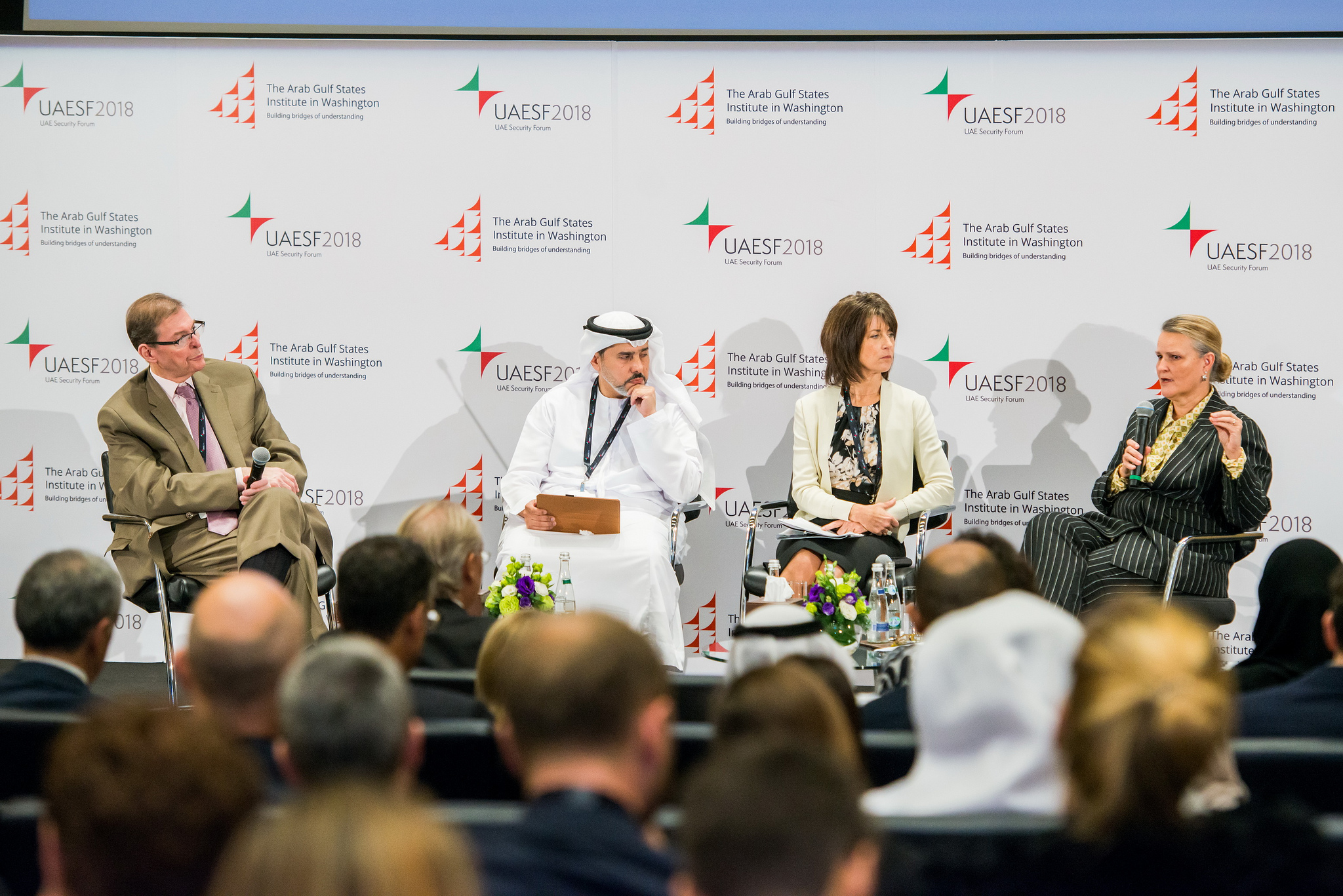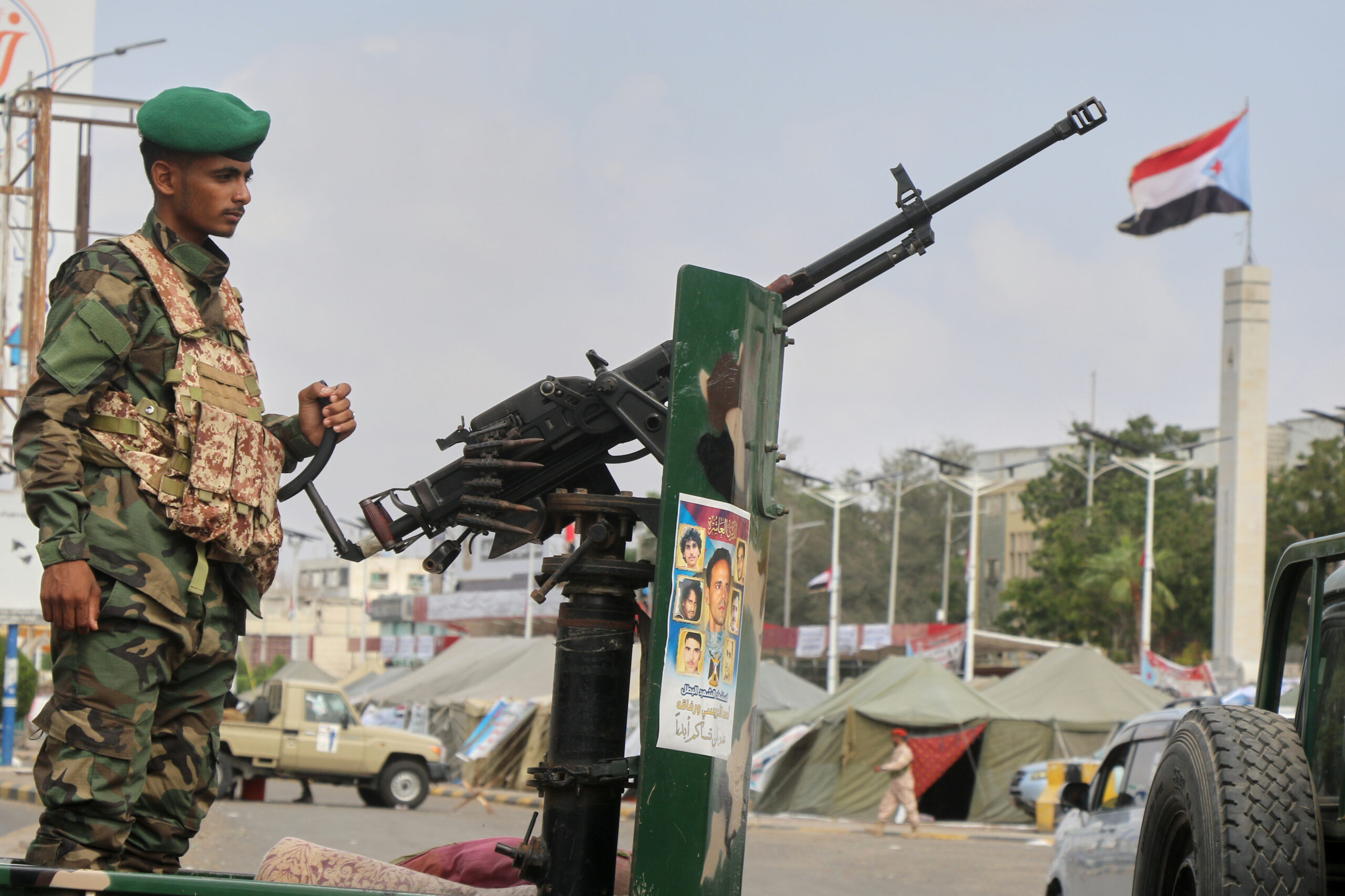UAE Security Forum 2018: “Yemen after the War: Addressing the Challenges of Peace and Reconstruction”
This report is based on the presentations and discussions during the UAE Security Forum 2018, “Yemen after the War: Addressing the Challenges of Peace and Reconstruction,” held on December 9, 2018 in Abu Dhabi.

Executive Summary
On December 9, 2018, the Arab Gulf States Institute in Washington held its third annual UAE Security Forum, “Yemen after the War: Addressing the Challenges of Peace and Reconstruction.” Held in Abu Dhabi, it brought together a diverse group of policymakers, scholars, and practitioners to provide recommendations on how best to secure an economically and politically sustainable Yemen.
The recent breakthrough in Sweden at U.N.-sponsored talks between the warring parties has revived hopes that a political settlement between representatives of the Yemeni government and Ansar Allah, the Houthi movement, may be reached in the near future. And while a peace is not likely to be reached without some setbacks, and some degree of conflict is expected to continue, it is not too early to address some pressing issues related to the postwar period in Yemen. Past experiences and failures, in Yemen and in other postconflict countries, have informed the best way to handle stabilization efforts to prevent a resurgence of violence.
At the forum, speakers and discussants agreed on the need to take small, simple, and pragmatic steps to quickly improve living conditions for the Yemeni population. They discussed how a responsible management of monetary policy through a reunified central bank could curb the spiraling humanitarian crisis. They addressed the need for security sector reforms and stabilization strategies that will establish pockets of peace through locally negotiated settlements. They linked unemployment reduction to any successful efforts at disarmament, demobilization, and reintegration. They mapped Yemen’s many economic assets: a resilient private sector, a bountiful diaspora and promising resources like agriculture, animal husbandry, fisheries, renewable energy, and deep-water ports. And finally, assessing the role of regional and international players in the reconstruction efforts, they stressed the need for coordination and burden sharing, as well as an emphasis on a bottom-up rather than top-down design of the reconstruction process.
Session I: Building a Lasting Peace
Session II: Regional Approaches to Postconflict Stability and Reconstruction
Session III: Developing Yemen’s Assets
The views represented herein are the author's or speaker's own and do not necessarily reflect the views of AGSI, its staff, or its board of directors.





